 [Written by Rabbi Moishe Lebovits]
[Written by Rabbi Moishe Lebovits]
New Sefer Volume 5 Just Released!!!!! (at your local seforim store)
Piskei Harav Belsky zt”l coming very soon (reprint hard cover)
There are two aspects of early Shabbos. One is the concept of accepting Shabbos a little early throughout the year. The other applies during the spring and summer months, for the practical reason that the Shabbos seudah begins very late. Some daven Minchah the same time each Friday, at 7:00 p.m., while for others the time for Minchah fluctuates based on the time for plag haminchah.
In this article we will discuss these aspects of early Shabbos. What is the source for making early Shabbos in general all year? What are the issues with making an early Shabbos during the spring and summer months?
Adding to Shabbos All Year
Our first point is to discuss the aspect of early Shabbos all year round – this is known as adding to Shabbos, or tosefes Shabbos.[1] The Gemara[2] maintains that there is an obligation d’Oraisa to add to Yom Kippur.[3] It then applies this to Shabbos[4] and Yom Tov as well.[5] This is how many poskim rule[6] (most say the obligation is d’Oraisa),[7] although many poskim understand that the Rambam was of the opinion that there is no obligation to add to Shabbos.[8] Logically, there would be no need to add to Shabbos, since Hashem rested on the seventh day and not on Friday. However, since we cannot calculate the exact end of Friday, we must add to Shabbos.[9]
It is important to point out that there is no punishment if one transgresses a Shabbos violation during this additional time, but if one adds to the Shabbos he receives a reward.[10]
Women
The obligation to add to Shabbos and Yom Tov applies to women just as much as men.[11]
Time to Add
Many earlier poskim do not mention how much time should be added to Shabbos.[12] The Shulchan Aruch[13] simply says “some time.”[14] Some maintain that not more than 13.5 minutes need to be added,[15] while some say twenty minutes,[16] and others a half hour.[17]
The custom of many in Yerushalayim is to light the candles forty minutes before shkiah.[18] However, others question this practice and the Sephardim do not seem to follow this custom.[19]
Lighting Eighteen Minutes before Sunset
There is a widespread custom for women to light candles eighteen minutes before shkiah.[20] The rationale for this custom is based on the opinion of the Yerei’im, who holds that bein hashmashos starts before sunset.[21] As we will explain later, most of the calculations are based on three-quarters of a mil. The Yerei’im holds that bein hashmashos starts three-quarters of a mil before sunset. The most extreme opinion for a mil is twenty-four minutes, and three-quarters of twenty-four is eighteen. Therefore, the custom is to refrain from work eighteen minutes before shkiah by lighting the candles.[22]
It is important to point out that men should make sure to refrain from work before shkiah and preferably at the candle lighting time.[23]
Be Careful about Doing Melachah Close to Sunset
The Aruch Hashulchan[24] says that one should be careful to accept Shabbos early in order to avoid the grave punishment for chillul Shabbos.
What Needs to Be Done
There is a discussion in the poskim as to how exactly one adds to Shabbos.[25] Some say that one can just have in mind that he is adding to Shabbos,[26] while others maintain that he must say, “I am adding to Shabbos.”[27] Others say this can be accomplished by saying Barchu at Ma’ariv (see below).[28] The custom today is that when one says Mizmor Shir it is accepting Shabbos as well.[29] Others say this is accomplished by saying bo’i kallah at the end of Lecha Dodi.[30] This takes effect even if one recites it when it is still day outside (as long as it is after plag haminchah; see below).[31] Some say that Shabbos comes upon a person even without saying anything,[32] while others say the cessation from work prior to bein hashmashos suffices.[33]
There is an opinion in the poskim that one should not say “Good Shabbos” before Minchah, as this may be an acceptance of Shabbos and then he could not daven Minchah afterwards.[34] However, the custom is to permit this, since the intention is not to accept Shabbos, but is simply a nice gesture to family or friends.[35]
What Is Happening When We Add to Shabbos
Hashem can work until the last moment on Friday and then rest for Shabbos, but we cannot be so exact so we stop early. This gives us a great opportunity to actually add holiness to an otherwise mundane day.
Understanding the Different Times
The opinion of many poskim is that shkiah is when the sun sets, followed immediately by bein hashmashos.[36] The Gemara[37] says that bein hashmashos lasts for three-quarters of a mil, which we calculate at 13.5 minutes.[38] (Although there are different shiurim for a mil, we work with the basic opinion that it is eighteen minutes per mil.)[39] Another Gemara[40] says that tzeis hakochavim is four mil after shkiah, which we calculate at seventy-two minutes. These two statements are contradictory. There are two ways to resolve this contradiction, and these are the sources of today’s opinions.
Many poskim, including the Shulchan Aruch,[41] answer the contradiction as follows.[42] There are two different shkios. The first shkiah is when the sun sets, but for the next three mil and a quarter (58.5 minutes) it is considered day. After this point it is considered bein hashmashos for 13.5 minutes, and when this time passes it is night. This is commonly known as the opinion of Rabbeinu Tam.
Many other poskim[43] maintain that when the sun sets it is considered shkiah. The next 13.5 minutes are the bein hashmashos period after sunset, followed by night.[44] This is commonly known as the opinion of the Gra[45] (although this opinion pre-dates the Gra). The Gra uses the famous words of “chush meid,” that one’s intellect can tell that the sky is already dark before seventy-two minutes.[46] The Gemara that refers to seventy-two minutes was not saying it as a matter of halachah l’ma’aseh. In addition, it could be that all the stars are visible after seventy-two minutes,[47] but only three stars need to be seen in order for it to be night.[48] The custom in Eretz Yisrael in most places is to follow the opinion of the Gra.[49]
It could be that Rabbeinu Tam holds that nightfall is defined by three stars in the western sky, hence his opinion that it does not have a status of night until later on.
However, these calculations apply to Eretz Yisrael and Bavel[50] during the spring and autumn. The sun will set at different times during the winter and summer.[51] In addition, the location also has a big impact on these calculations.[52] For example, in New York it would make sense that bein hashmashos will last longer since we are further away from the equator. Many have the practice to keep Shabbos until forty-two minutes after shkiah; there is no source for this custom. Some maintain that the Gra’s opinion in New York would be about twenty-five minutes after shkiah, although in practice this is not followed. However, there are poskim who say that the time according to Rabbeinu Tam in New York would actually be earlier – fifty minutes after shkiah, since the sky is full of stars and does not get any darker. (Even according to this opinion one should wait until seventy-two minutes even in New York if there is no pressing need, although it is not required.)[53]
It used to be the practice of chassidim to do melachah on Friday until 58.5 minutes after sunset.[54] Harav Aharon Kotler zt”l met with the Satmar Rebbe zt”l and expressed his concern that the sight of openly frum men doing melachah after sunset would cause a severe laxity in Shabbos observance in America. The outcome was that everyone started Shabbos at sunset, and the yeshivish world would accept Rabbeinu Tam on Motza’ei Shabbos and wait seventy-two minutes for Shabbos to be over.[55] The custom is to hold like the opinion of Rabbeinu Tam in areas where it is a stringency unless one has a custom to follow the Gra, such as his students.[56]
On Erev Shabbos one should not do work after sunset, following the opinion of the Gra.[57]
In addition, throughout the centuries Shabbos was over 13.5 minutes after sunset, in accordance with the Gra’s opinion.[58] However, as mentioned before, this is not the customary practice today.[59]
Different Times
As mentioned above, there are two different opinions in regard to shkiah.
According to the Gra’s opinion that shkiah is sunset, one should be careful and stop doing work even a half hour before sunset,[60] since that is the time for the mitzvah of adding to Shabbos.[61] According to Rabbeinu Tam it is day for fifty-eight minutes after sunset, and that entire time is available for adding to Shabbos.
Practically speaking, we daven Ma’ariv after sunset, and usually Mizmor Shir and Lecha Dodi as well. Therefore, it is preferable to accept Shabbos right after Minchah. How this plays out in regard to making early Shabbos we will discuss below.
However, it is common to finish Minchah after sunset. According to the Gra, when should one accept Shabbos?[62] It is possible that if one knows he will finish Minchah after sunset he should add to Shabbos in his heart (or even by saying it with his mouth)[63] before Minchah. This is permitted even though he will now daven a weekday tefillah – Minchah.[64]
Introduction to Making Shabbos Early
In order to understand making early Shabbos we have to explain plag haminchah.
Plag Haminchah According to Different Opinions
One cannot accept early Shabbos until after plag haminchah.[65] Many opinions calculate plag haminchah as an hour and a half before nightfall.[66] According to these views, it is impossible make an early Shabbos in the summer, since plag is a few minutes before sunset.[67] However, some maintain that plag haminchah is an hour and fifteen minutes before shkiah.[68] This is calculated as follows: there are two different times for Minchah, six and a half hours into the day and nine and a half hours into the day. The second time is two and a half hours before shkiah. Half of that time (plag) is one and a quarter hours before shkiah.[69]
Earlier, we discussed the obligation to accept Shabbos a few minutes early, or in some cases a half hour early. In the spring and summer months many people make early Shabbos. Since we cannot make early Shabbos before plag haminchah, one should make sure that his wife does not light candles before plag.[70] Regarding the opinion that plag haminchah is one hour and a half from tzeis hakochavim, even eighteen minutes before sunset is too early.[71] Some say that we rely on those who say plag haminchah is before sunset, not tzeis hakochavim.[72]
Making Early Shabbos
The Gemara[73] says that Rav davened Ma’ariv early on Erev Shabbos, which indicates that one may daven Ma’ariv early on Friday. The Shulchan Aruch[74] rules that one may daven Ma’ariv from plag haminchah on Friday.[75]
Time for Minchah and Ma’ariv
First we must understand the end time for Minchah and the beginning time for Ma’ariv, and then move on to the discussion of early Minchah and Ma’ariv.
The Mishnah[76] records a dispute between the chachamim and Rebbi Yehudah.[77] The chachamim say that one can daven Minchah until night[78] (see below, but for our purpose let us say it means sunset,[79] although many say this is even afterwards).[80] However, Rebbi Yehudah holds one may daven Minchah only until plag haminchah[81] (see below). According to Rebbi Yehudah one may daven Ma’ariv after plag haminchah[82] but not Minchah, and according to the chachamim one may only daven Ma’ariv after night and Minchah until night.[83] Each opinion has a stringency and leniency.[84] Some poskim hold like the chachamim[85] and some say like Rebbi Yehudah.[86]
The Gemara concludes that one can do as he wishes.[87] However, this is a little vague and we will discuss this below.
During the week, most people do not daven both Minchah and Ma’ariv between plag haminchah and sunset. However, this is an issue on Erev Shabbos.
Many poskim say that one should not daven both Minchah and Ma’ariv between plag haminchah and sunset.[88] One should choose to follow either Rebbi Yehudah or the chachamim and not contradict himself.[89] Furthermore, one should pick one opinion and act in accordance with it all his life.[90] Since we have the practice to daven Minchah after plag haminchah, most people follow the opinion of the chachamim.[91] Nonetheless, one who did daven Minchah after plag haminchah was yotzei.[92] If we follow the chachamim, we should not daven Ma’ariv before nightfall unless it is a pressing need.[93] Others say there is only a possible concern if one does so in the same day.[94] However, if one wishes to daven Ma’ariv after plag haminchah one day like Rebbi Yehudah and then daven Ma’ariv after sunset a different day like the chachamim there is no issue of contradicting himself.[95] Some maintain the custom is not to be concerned even if Minchah and Ma’ariv are davened the same day after plag haminchah.[96]
The Aruch Hashulchan[97] explains that on Erev Shabbos we daven Ma’ariv early for the following reason: Ma’ariv corresponds to the korbanos that were burned on the Mizbe’ach during the night. Since the korban of Erev Shabbos could only be burned on Friday afternoon, we can also daven Ma’ariv early on Friday.
Davening Ma’ariv after plag haminchah is only permitted in a normal situation if one davened Minchah before plag.[98] Even though we typically daven Minchah after plag, we can be lenient on Erev Shabbos and daven Ma’ariv after plag.[99]
Most shuls daven Minchah before sunset and Ma’ariv a few minutes afterwards. This is permitted since Minchah and Ma’ariv are not davened in the same time.[100]
Lenient Opinions
When it is difficult to form a minyan twice, there are some opinions that permit davening both Minchah and Ma’ariv between plag haminchah and sunset.[101] The same logic would apply to making early Shabbos to avoid eating too late at night.[102] However, the Mishnah Berurah[103] says that one should still daven Ma’ariv during bein hashmashos.[104] Elsewhere, however, the Mishnah Berurah[105] rules like the lenient opinion. Nonetheless, this is a weak leniency.[106]
Many say that the concern to daven both Minchah and Ma’ariv between plag haminchah and sunset is not an issue since the Gemara does not come out with a clear halachah.[107]
Some maintain that since one adds onto Shabbos then it is permitted to daven Ma’ariv after plag haminchah.[108] However, Minchah should be davened before plag haminchah.[109]
The 7:00 p.m. Minchah on Erev Shabbos
During the spring and summer months, many shuls make early Shabbos and arbitrarily set Minchah to be at 7:00 p.m.[110] Some explain the reason for this time since plag haminchah is usually not until after 7:00 p.m. Therefore, we daven then to ensure that the women will not light before plag haminchah.
Many communities are careful to daven Minchah before plag haminchah and Ma’ariv afterwards. This follows those poskim who maintain that one should not daven both Minchah and Ma’ariv between plag haminchah and sunset. Although one should not pick one day like one opinion and another day like a different person (according to many poskim), it is permitted on Erev Shabbos.
The issue which arises is the 7:00 p.m. Minchah. This is done for convenience so there is no need to change the time of Minchah each Friday, although it is not such an issue with today’s mass communications. Most times Minchah is after plag haminchah and Ma’ariv is in the same time frame. Even if one is lenient and davens Ma’ariv after plag, one should make sure to daven Minchah before plag haminchah.[111]
One may be able to rely on those who say there is no concern for davening Minchah and Ma’ariv after plag haminchah, although most do not hold like this.
The Aruch Hashulchan[112] says that this is a unique leniency for Erev Shabbos.
Some maintain that since Ma’ariv was not instituted as an obligation, there is no set time for it.[113]
In one place the Mishnah Berurah[114] says that one should not daven Minchah and Ma’ariv after plag haminchah on the same day, even if a need arises, while elsewhere he is lenient.[115]
If one cannot daven Minchah before plag haminchah it may be preferable to daven without a minyan before plag than with a minyan after plag.[116]
Some maintain that the time for Ma’ariv begins at whichever point one davens Minchah after plag.[117]
A Good Rationale for Leniency for Early Minchah and Ma’ariv
As mentioned, there are no real good leniencies to allow Minchah and Ma’ariv after plag haminchah before sunset. However, the Shraga Hameir[118] offers the following:
When one davens Minchah after plag haminchah it is day, and then one accepts Shabbos. At this point, it is considered the next day, and it is not a contradiction from one day to the next, although for other halachos we do not hold like this.
Another possible explanation is that many times a man lights candles for Shabbos (he is not married or is not home for Shabbos). If we would require him to daven Minchah before plag haminchah, he would have to go home and light candles afterwards. Since this would be a bother for him, we allow him to daven both Minchah and Ma’ariv after plag.[119] Others maintain that this practice is not followed.[120]
Against Early Shabbos
Some have the practice to always daven Ma’ariv at the correct time and not early.[121] Harav Shlomo Zalman Auerbach zt”l[122] was of the opinion not to make early Shabbos.[123]
Meal
According to some poskim, one who makes early Shabbos should make sure to extend his meal into the night.[124] The requirement to eat three meals is derived from the pasuk, “ichluhu hayom,” to eat it on Shabbos day.[125] This implies that it needs to be on Shabbos proper.[126] Others say that this is not required since by adding to Shabbos it is now considered night according to halachah.[127] The Aruch Hashulchan[128] holds that this is a pious act, but is not required according to the strict law.
It is proper to be stringent and eat a kezayis of bread when it gets dark.[129]
Some offer the option to daven Kabbalas Shabbos, eat the meal, and then daven Ma’ariv at the later minyan. This is permitted as long as the meal does not start a half hour before shkiah.[130] However, Harav Moshe Feinstein zt”l was against this, since this is an odd practice.[131]
Kiddush
One can make Kiddush on Friday after accepting early Shabbos even if it is broad daylight,[132] since it is considered Shabbos.[133]
Krias Shema
The time for reciting Krias Shema is when one lays down to sleep at night.[134] (Some maintain this is as early as eighteen minutes after shkiah,[135] but the custom is around forty-five minutes after shkiah.)[136] Some say that Krias Shema of early Shabbos is considered the correct time, and there is no need to repeat it later on.[137] However, the practice is to repeat Krias Shema[138] (preferably all three parshiyos)[139] after nightfall.[140] Although it is preferable to recite Krias Shema next to Shemoneh Esrei, since one is adding to Shabbos we lift this concern.[141]
One may not eat a meal within a half hour[142] of the proper time of reciting Krias Shema,[143] since he may be engrossed in his meal and forget to say Krias Shema.[144] The question is how this impacts those who make early Shabbos, make Kiddush, and eat before reciting Krias Shema in its proper time. It is possible that since Krias Shema was in fact recited at Ma’ariv, albeit early, there is no issue.[145] Others suggest that we rely on Krias Shema al Hamittah.[146] Alternatively, one who makes early Shabbos usually begins his meal more than a half hour before the correct time to recite Krias Shema (at night), so there is no issue.[147] One who delayed the start of the meal until a half hour before the correct time for Krias Shema (twenty minutes after shkiah) should say Krias Shema before eating his Shabbos meal.[148] There is no need to interrupt the meal to recite Krias Shema,[149] although some have the custom to recite it during the meal.[150]
In any case, one should make sure not to miss out on the recital of Krias Shema as it is d’Oraisa.[151] Therefore, the gabbai should remind everybody after Ma’ariv.[152]
[1] It should be pointed out that obviously this mitzvah applies whether in the summer or winter, although people don’t make early Shabbos in the winter for obvious reasons (Mishneh Halachos 15:84).
[2] Rosh Hashanah 9a, Yoma 81b.
[3] Rambam Hilchos Shvisas Oser 1:6, see Maggid Mishnah and Lechem Mishnah there. Shulchan Aruch O.C. 624:2. On Yom Kippur the adding to the day takes place with the recital of Tefillas Zakah (see Nishmas Shabbos 1:211). In regard to Tishah B’Av see Moadim U’zmanim 7:253.
[4] Both when Shabbos comes in and when it leaves (Mishnah Berurah 261:19, Shemiras Shabbos K’hilchasah 46:1, see Shulchan Aruch 293:1).
[5] Ibid, Mechilta Parshas Yisro 7, Bereishis Rabbah 9:14, see Rashi Bereishis 2:2, Kol Bo 31.
[6] Shulchan Aruch O.C. 261:2. See Biur Halachah 261 “yeish omrim.”
[7] Tosafos Maseches Rosh Hashanah 9a “v’rebi,” Ramban Rosh Hashanah 9a, Ran Rosh Hashanah 9a, Yerei’im 274, Smag Mitzvas Asei 32, Levush 261:4, Magen Avraham 261:8, Elyah Rabbah 12, Taz 291:6, Machatzis Hashekel 261:8, Chayei Adam (Shabbos) 2-3:5:1, Mishnah Berurah 261:19, Aruch Hashulchan 261:6, Rivevos Ephraim 4:65, Shevet Halevi 4:27:2. See Biur Halachah 261 “m’plag.” Refer to Yabia Omer O.C. 5:21, Nishmas Shabbos 1:205. See Machzik Brachah 261:6, Kaf Hachaim 16.
[8] See Kesef Mishnah Hilchos Shabbos 5:3, Beis Yosef 261. Although some maintain the Rambam holds there is an obligation, but it is Rabbinic. Refer to Radvaz 5:113. See Chut Shani Shabbos 4:pages 49-50.
[9] Midrash Rabbah Bereishis 10:9.
[10] Mishnah Berurah 261:19.
[11] Pri Megadim M.Z. 608:1, Kaf Hachaim 261:16, Rivevos Ephraim 4:65, 69:4, Mishneh Halachos 6:54, Nishmas Shabbos 1:206. See Yabia Omer O.C. 8:29:6, Seridei Eish 1:26, Shemiras Shabbos K’hilchasah 46:footnote 7.
[12] Refer to Biur Halachah 261 “eizeh.” For a complete list of amounts of time see Nishmas Shabbos 1:207. See Rosh Maseches Yoma 8:8, Tosafos Maseches Brachos 27a “d’rav.”
[13] 261:2.
[14] Most say it can be a minute amount (Yabia Omer O.C. 5:21). See Rosh Maseches Yoma 8:8. Harav Moshe Feinstein zt”l mentions one should add two minutes (Igros Moshe O.C. 1:96, see Eretz Tzvi 1:60, Shevet Halevi 8:154:2).
[15] Biur Halachah 261 “eizeh.” See Mishnah Berurah 261:22.
[16] See Kaf Hachaim 261:23.
[17] Shitah Mekubetzes Maseches Beitzah 30a (end).
[18] Sefer Eretz page 26, Shemiras Shabbos K’hilchasah 40:footnote 20, Moadim U’zmanim 6:84, Rivevos Ephraim 7:85:2, Teshuvos V’hanhagos 4:61, Halichos Shlomo Tefillah page 161:footnote 11, Minchas Yitzchak 9:20, Mishnas Yosef 4:33, Piskei Teshuvos 261:6. This does not apply to a man (Shemiras Shabbos K’hilchasah ibid., Yisrael V’hazmanim 1:23, Pnei Shabbos 16:footnote 23. Some say the reason is that since candle lighting was given to women they are extra careful with it and light early. See Yisrael V’hazmanim 1:23:footnote 145 in depth.). If someone from Yerushalayim goes to a different area in Eretz Yisrael where they light earlier she should light as her custom in Yerushalayim (Teshuvos V’hanhagos 4:61, Yisrael V’hazmanim 1:23:4, Rivevos Ephraim 4:65). It would seem that women who come from America to Eretz Yisrael to live for the year after marriage should also light as the custom is in Yerushalayim. Some suggest the reason for the forty minutes is to hold like the opinion that bein hashmashos is eighteen minutes before shkiah and according to those who hold adding to Shabbos is about twenty minutes (Pnei Shabbos 16:page 288, see Yisrael V’hazmanim 1:23:4).
[19] Yabia Omer O.C. 5:21. See Yisrael V’hazmanim 1:23:4 quoting the opinion of the Shevet Halevi.
[20] See Igros Moshe O.C. 1:96, 2:6 which says twenty minutes.
[21] Biur Halachah 261 “m’techilas.”
[22] Teshuvos V’hanhagos 4:61, Igros Moshe O.C. 2:6, Mishnas Yosef 4:33, Mahari Shteiff 2, Pnei Shabbos 16:pages 287-288. Refer to Yisrael V’hazmanim 1:23. See Aruch Hashulchan 261:6 which says this opinion was not accepted.
[23] Refer to Mishnah Berurah 261:23.
[24]267:4. See Aruch Hashulchan 256:3.
[25] Refer to Ohr Yisrael 23:pages 72-76.
[26] See Shevet Halevi 10:50.
[27] Mishnah Berurah 261:21, Shemiras Shabbos K’hilchasah 46:2. See Shevet Halevi 4:27:1, Moadim U’zmanim 7:253, 223 in footnote, Teshuvos V’hanhagos 3:83.
[28] Chayei Adam (Shabbos) 2-3:5:2, Mishnah Berurah ibid, 28. See Shulchan Aruch 261:4, Magen Avraham 13, Levush 3, Elyah Rabbah 10.
[29] Chayei Adam (Shabbos) 2-3:5:2, Mishnah Berurah 261:31, Shemiras Shabbos K’hilchasah 46:3. See Shulchan Aruch 261:4, Shulchan Aruch Harav 261:7.
[30] See Mishnah Berurah 31, Aruch Hashulchan 16.
[31] Mishnah Berurah 29.
[32] Chayei Adam (Shabbos) 2-3:5:2. See Nefesh Harav page 155. Refer to Teshuvos V’hanhagos 3:83.
[33] Shulchan Aruch Harav 261:5, Aruch Hashulchan 261:2.
[34] Opinion of Harav Shlomo Zalman Auerbach zt”l quoted in Teshuvos V’hanhagos 4:59, Halichos Shlomo Tefillah 2:footnote 44, Yisrael V’hazmanim 1:23:3:16.
[35] Teshuvos V’hanhagos 4:59.
[36] Aruch Hashulchan 261:5.
[37] Shabbos 34b.
[38] See Sha’ar Hatzion 261:6. See Mishnah Berurah 23 which says it is fifteen minutes.
[39] Mishnah Berurah 459:15, Biur Halachah “havei.” See Moadim U’zmanim 2:155.
[40] Pesachim 94a.
[41] 261:2. See Beis Yosef 261.
[42] See Tosafos Maseches Shabbos 35a “trei,” Maseches Pesachim 94a “Rebbi Yehudah,” Tosafos Maseches Zevachim 56a “minayin,” Tosafos Menachos 20b “nifsal.” Refer to Mishnah Berurah 261:2, 14, Aruch Hashulchan 261:5. See Teshuvos V’hanhagos 2:167, Moadim U’zmanim 2:155.
[43] Rambam Hilchos Tefillah 5:4, see Beis Yosef O.C. 261, Mishnah Berurah 20, 23, 331:14, Aruch Hashulchan 5, 8.
[44] Refer to Biur Halachah 261 “m’techilas.” Some question this since in many places there are no stars in the sky 13.5 minutes after sunset (Moadim U’zmanim 6:84).
[45] O.C. 261, 262. See Lehoros Nosson 2:14.
[46] O.C. 261.
[47] Moadim U’zmanim 8:155:page 38.
[48] Gra O.C. 261. See Aruch Hashulchan 261:8.
[49] Moadim U’zmanim 8:155, Minchas Yitzchak 9:20. See Birchei Yosef 261:1, Mishnah Berurah 331:14.
[50] Biur Halachah 261 “shehu.”
[51] Biur Halachah 261 “shehu,” Aruch Hashulchan 8. For a discussion on this see Teshuvos V’hanhagos 2:167, Moadim U’zmanim 2:155.
[52] Mishnah Berurah 261:23.
[53] Opinion of Harav Moshe Feinstein zt”l quoted in Igros Moshe O.C. 1:24, 4:62, Y.D. 4:17:26. Refer to Yagel Yaakov O.C. 38, Teshuvos V’hanhagos 1:268, 273, 2:167, 3:83, Beis Avi 3:117, Mahari Shteiff 2, Yabia Omer O.C. 2:21, Daas Chazzon Ish 3:15 (who brings that the Chazzon Ish zt”l held 45 minutes after sunset on Motz’aei Shabbos, also see ibid pages 101-102). See Igros Moshe Y.D. 4:48:4, Divrei Shalom 3:75, Piskei Teshuvos 293:4, Moadim U’zmanim 2:155, 6:84, Pnei Shabbos 16:pages 286-287, Vaya’an Yosef O.C. 105. Refer to Biur Halachah 261 “shehu,” all Biur Halachah to 293. In regard to a fast one can wait until forty-one minutes after shkiah; if he is not really hungry he should wait until fifty minutes. Megillah reading on Ta’anis Esther should start fifty minutes after shkiah (Igros Moshe O.C. 4:62). See Shevet Halevi 6:72. In Eretz Yisrael they are lenient in this regard relating to Motza’ei Shabbos (see Kaf Hachaim 261:1, Rav Poalim 2:19, Orchos Rabbeinu 1:page 163:235, Birur Halachah 293:2).
[54] See Chasam Sofer O.C. 80, Kitzur Shulchan Aruch 75:1, Keren L’Dovid 79, Mishneh Halachos 10:54. Refer to Yabia Omer O.C. 2:21. See Yagel Yaakov O.C. 38 which quotes this as the custom in Oberland. For more on this see Magen Avraham 331:2, Vaya’an Yosef 103-105, Pri Yitzchak 1:7, Be’er Moshe 2:61.
[55] Yalkut Yosef 261:5. See Yabia Omer O.C. 2:21, Mahari Shteiff 2, Divrei Yatziv O.C. 134:3, Teshuvos V’hanhagos 3:83, Piskei Teshuvos 261:5. See Ketzos Hashulchan 93:Badei 2. Even if one holds seventy-two minutes after Shabbos he needs to add at least two minutes to fulfill adding to Motza’ei Shabbos as well (The Aura of Shabbos pages 195-197:footnotes 14-16). However, one does not have to say he is accepting additions to Shabbos as some say one is required to do so on Erev Shabbos (Teshuvos V’hanhagos 3:83, see Moadim U’zmanim 7:253 in footnote, see B’tzel Hachachmah 5:53).
[56] Igros Moshe Y.D. 3:129:3, Yisrael V’hazmanim 1:23.
[57] Mishnah Berurah 261:23, Biur Halachah “yeish,” “kodem,” Igros Moshe Y.D. 4:48:4, Mahari Shteiff 2, Yalkut Yosef 261:5, Yabia Omer O.C. 2:21, Shevet Halevi 1:49, Tzitz Eliezer 18:14:62. See Mishnah Berurah 261:20, 23, Biur Halachah 261 “b’techilas.” In regard to the question if a baby boy is born twenty minutes after shkiah on Erev Shabbos is the bris on Friday or Shabbos: Does twenty minutes after shkiah mean it is the next day according to the Gra or as the Rabbeinu Tam holds, is it day at that point? (See Beis Yitzchak Y.D. 95, Igros Moshe O.C. 1:24, Yabia Omer O.C. 7:41, Shemiras Shabbos K’hilchasah 46:footnote 45 in depth, Minchas Elazar 1:23, Orchos Rabbeinu 1:pages 162-163, Shevet Halevi 1:49.) In regard to a hefsek taharah for a woman, see Igros Moshe O.C. 4:62, 4:17:26 (until nine minutes after shkiah).
[58] Especially in Galicia and Hungary. See Pnei Shabbos 1:page 124. Refer to Igros Moshe Y.D. 4:17, Tzitz Eliezer 18:14:6.
[59] Pnei Shabbos 1:page 124.
[60] Mishnah Berurah 261:23.
[61] Kaf Hachaim 261:18.
[62] Mishneh Halachos 10:54.
[63] Mishmeres Shalom 26:3.
[64] Pnei Shabbos 1:15, Eretz Tzvi 1:60, Teshuvos V’hanhagos 3:83, Minchas Yitzchak 9:20. If one knows the minyan will end after shkiah then he should daven by himself rather than with the minyan (Mishnah Berurah 233:14, Shemiras Shabbos K’hilchasah 46:5).
[65] Rama 261:2, Levush 4, Mishnah Berurah 25, 233:10, 267:4, 235:14. See Nishmas Shabbos 1:209. See Nishmas Shabbos ibid if this makes a difference if one generally goes with the opinion that one should always daven Minchah until night. Refer to Terumas Hadeshen 1 which quotes the practice to bring early Shabbos on 3-4 hours before tzeis hakochavim.
[66] Refer to Rosh 4:5, Tosafos Maseches Brachos 27a “d’rav,” Shulchan Aruch 233:1, 263:4, Rama 233:1, Chayei Adam 21:23, 27. See Yisrael V’hazmanim 1:12.
[67] Refer to Piskei Teshuvos 261:7.
[68] See Magen Avraham 233:3, 267:1, 459:3, Levush 267, Gra 459, Mishnah Berurah 261:25, Biur Halachah 261 “l’hakdim,” Aruch Hashulchan 261:10, Shraga Hameir 5:20:2. See Magen Avraham 261:10. Refer to Yisrael V’hazmanim 1:12.
[69] Refer to Rambam Hilchos Tefillah 3:4, Shulchan Aruch O.C. 233:1, Chayei Adam (Shabbos) 2-3:5:1.
[70] Teshuvos V’hanhagos 2:69.
[71] Pnei Shabbos 18.
[72] Pnei Shabbos 18:page 295. For more on this refer to Yisrael V’hazmanim 1:23:3, Minchas Yitzchak 9:20.
[73] Brachos 27b.
[74] O.C. 267:2.
[75] Rambam Hilchos Tefillah 3:7.
[76] Brachos 26a.
[77] See Aruch Hashulchan 233:6 on why we don’t say that the chachamim who are the majority should win over Rebbi Yehudah, who is an individual.
[78] See Rashi on mishnah “ad,” Shiltei Giborim on Mordechai to Maseches Brachos 27a, Shibolei Haleket 45, Shulchan Aruch 233:1, Rama 1. See Mishnah Berurah 233:14 which says Minchah should be davened before shkiah. See, however, Shulchan Aruch 233:1, Rama. Also see Yabia Omer O.C. 8:23:29, Yechaveh Da’as 5:22, Beis Avi 1:18, Ohr L’tzion 1:20, Yisrael V’hazmanim 13, Minhag Yisrael Torah 233:1, Mishneh Halachos 7:32 (the custom in most of Europe was to daven Minchah until tzeis hakochavim). Some say the reason for this is in order to daven Ma’ariv and say Krias Shema when it is after the correct time (Nemukei Orach Chaim 131, see Mishneh Halachos 7:32).
[79] This is the custom of those living in Eretz Yisrael and non-chassidim (see Yisrael V’hazmanim 1:13:8). Refer to Rambam Hilchos Tefillah 3:4, 9, Gra 261, Mishnah Berurah 233:8, 14, Sha’ar Hatzion 10, 18, 235:20, Biur Halachah “d’heinu,” Aruch Hashulchan 9. Refer to Maseches Menachos 20a-b, Zevachim 56a. In a pressing situation one can daven later as well (Mishnah Berurah 233:14). See Rav Poalim 2:19. However, refer to Maseches Brachos 39b which denounces those who daven Minchah close to sunset (see Aruch Hashulchan 233:8). We do this since we are busy with our work but it is better to daven Minchah before plag haminchah if possible (Aruch Hashulchan 233:8). One who usually davens Minchah before sunset and finds himself at a minyan which is very much after sunset should rather daven by himself than with that minyan (see Mishnah Berurah 233:14, Shevet Halevi 9:48). Others are not convinced that this be so (see She’arim Metzuyanim B’halachah 69:1, opinion of Be’er Moshe quoted in Yisrael V’hazmanim 1:page 207, Yechaveh Da’as 5:22, Beis Avi 1:18, Mishneh Halachos 7:32, see Yisrael V’hazmanim 1:13:4:page 192, page 206.
[80] This is the custom of chassidim (Yisrael V’hazmanim 1:13:8). See Kitzur Shulchan Aruch 69:2, Nemukei Orach Chaim 131, Be’er Moshe 2:61, Yabia Omer O.C. 8:23:29, Yechaveh Da’as 5:22, Beis Avi 1:18. Some say since Minchah and Ma’ariv are davened next to each other and people daven Minchah later than sunset so Krias Shema can be recited in its proper time (Nemukei Orach Chaim 131). See Emes L’Yaakov 233:footnote 244 (half hour after shkiah).
[81] The Meiri Maseches Brachos 26a says even according to Rebbi Yehudah one can daven Minchah until sunset but it’s not the opportune time.
[82] In regard to Ma’ariv before plag haminchah see Levush 233:1, Shevus Yaakov 2:6, Shulchan Hatohar 233:3.
[83] For a detailed discussion on this see Yisrael V’hazmanim 1:15:1. Refer to Mishneh Halachos 15:84.
[84] Mishnah Berurah 233:5.
[85] See Tur 293, Shulchan Aruch 233:1.
[86] Rama 233:1. For a nice discussion on this see Minhag Avoseinu B’yadeinu (Shonos), pages 58-79.
[87] 27a. See Aruch Hashulchan 233:5-6.
[88] Tosafos Maseches Brachos 2a “m’eimasai,” Rosh Maseches Brachos 1:1, 4:3, Meiri Maseches Brachos 26b.
[89] Rosh Maseches Brachos 1:1, Rabbeinu Yonah Maseches Brachos page 18b, Tur 233, Shulchan Aruch 233:1, Magen Avraham 233:5, Pri Megadim Eishel Avraham 5, Mishnah Berurah 6, Aruch Hashulchan 10, 235:10, Taz 236:4. Refer to Kaf Hachaim 233:10 which says women can be lenient.
[90] Shulchan Aruch 233:1. See Mishnah Berurah 233:6. Refer to Ritz Gei’os Hilchos Havdalah page 25, Tur 293.
[91] Hagaos Maimonios Hilchos Tefillah 3:4, Tur 267, Shulchan Aruch 233:1, Magen Avraham 233:7, Biur Halachah 261 “miyad.” It was the practice of many to daven Ma’ariv early after plag haminchah like the opinion of Rebbi Yehudah (Aruch Hashulchan 233:3).
[92] Beis Yosef 267, Shulchan Aruch 233:1.
[93] Shulchan Aruch 233:1. See Aruch Hashulchan 235:1.
[94] See Mishneh Halachos 6:49. Refer to Machatzis Hashekel 233:5.
[95] Meiri Maseches Brachos 27a. Refer to Mishneh Halachos 6:49. See Rosh Maseches Brachos 1:1. Refer to Machatzis Hashekel 233 which says even in separate days it should not be done. See Mishnah Berurah 233:6, 12.
[96] Mishneh Halachos 6:49.
[97] 235:3-4.
[98] Mishnah Berurah 233:11, 235:14, Sha’ar Hatzion 235:16.
[99] Kesef Mishnah Hilchos Tefillah 3:7, Beis Yosef 267, Shulchan Aruch 267:2. See Magen Avraham 1, Shulchan Aruch Harav 267:2.
[100] Teshuvos V’hanhagos 2:69. See Minhag Yisrael Torah 233:2.
[101] Magen Avraham 233:7, Mishnah Berurah 233:11, 13, 235:10, Aruch Hashulchan 10. See Aruch Hashulchan 235:1.
[102] See Mishneh Halachos 6:56.
[103] 267:3.
[104] See Biur Halachah 267 “v’plag.” Refer to Mishnah Berurah 235:14.
[105] 233:11, 13.
[106] Biur Halachah 267 “v’plag.”
[107] Mordechai Maseches Brachos 27a-89.
[108] Aruch Hashulchan 233:3.
[109] Mishnah Berurah 267:3.
[110] There are many places in Europe where it does not get dark until much later at night, sometimes 11:00 p.m., and making Shabbos at 7:00 p.m. would be much too early (Shoalim V’dorshin 1:16:page 163). It is interesting that during the winter people are accustomed to make Shabbos whatever time it says on the calendar and in the Summer they make a set time at 7:00pm even though plag haminchah most of the time is before 7:00pm. There are some communities which print on their calendar the time for candle lighting as well as the time of plag haminchah to make sure Minchah is davened before plag haminchah.
[111] Sha’ar Hatzion 236:10, Mishnah Berurah 267:3.
[112] 267:3.
[113] Rosh Maseches Brachos 1:1. See Teshuvos V’hanhagos 2:69.
[114] 267:3.
[115] 233:11, 13.
[116] Opinion of Harav Shachter shlit”a. Refer to Mishnah Berurah 267:3.
[117] Pri Yitzchak 1:7.
[118] 5:21, see Apraksisa D’anya 8.
[119] Shraga Hameir 5:21.
[120] Shraga Hameir 5:21:2.
[121] Massei Rav 65, 115, Orchos Rabbeinu 1:page 108:37, Teshuvos V’hanhagos 1:273. For a nice discussion on the different reasons why people did not make early Shabbos, see Techumin 10:pages 391-401. Some do not like the early Shabbos minyan, because most times the rav does not daven at that minyan and they miss his speech that he often delivers between Kabbalas Shabbos and Ma’ariv (Shoalim V’dorshin 1:16:12:page 149).
[122] Halichos Shlomo Tefillah 14:footnote 10.
[123] See Ashrei Ha’ish 2:pages 38-39:23.
[124] Sefer Chassidim 269. See Taz 291:6. Refer to Mishneh Halachos 11:203.
[125] Shemos 16:25.
[126] Mishnah Berurah 267:5.
[127] Magen Avraham 267:1, Taz 291:6, Elyah Rabbah 2, Mishnah Berurah 5. Refer to Be’er Moshe 1:15:8.
[128] 267:5.
[129] Mishnah Berurah 267:5, Halichos Shlomo Pesach 11:footnote 2.
[130] Mishnah Berurah 271:11. See Ashrei Ha’ish 2:pages 38-39:24, quoting the opinion of Harav Elyashiv zt”l.
[131] Mesores Moshe pages 61-62. Refer to Rivevos Ephraim 7:7:86:1, 7:293. This is the opinion of Harav Yisroel Belsky zt”l as well.
[132] Maseches Brachos 27b, Rambam Hilchos Shabbos 29:11, Shulchan Aruch 267:2, Aruch Hashulchan 5. See Mishneh Halachos 11:204. Refer to Teshuvos V’hanhagos 5:73.
[133] Mishnah Berurah 267:6.
[134] Maseches Brachos 2a, Rambam Hilchos Krias Shema 1:9, Shulchan Aruch 235:1, Mishnah Berurah 1.
[135] Halichos Shlomo Pesach 11:footnote 2. Refer to Nemukei Orach Chaim 235 which says it is seventy-two minutes after shkiah.
[136] Igros Moshe E.H. 4:84:5.
[137] Tosafos Maseches Brachos 2a “m’eimasai,” Rashba 2a, Meiri 2a, 26b, see Rosh Maseches Brachos 1:1. Refer to Ohr Zarua Hilchos Krias Shema 1.
[138] This is not just a chumrah (Mishnah Berurah 235:6).
[139] Mishnah Berurah 235:11, Aruch Hashulchan 8.
[140] Rosh Maseches Brachos 1:1, 4:6, Rabbeinu Yonah Maseches Brachos page 50, Rambam Hilchos Tefillah 3:7, Shulchan Aruch 235:1, Mishnah Berurah 233:5, 267:3, Aruch Hashulchan 6-8. See Mishnah Berurah 235:12. The Gra held it is better to daven Ma’ariv by oneself at the right time if one can’t gather ten people to say Krias Shema (see Biur Halachah 235 “v’eim”). In earlier times it was hard for people to come to shul at night due to the lack of electricity. Therefore, they would daven Ma’ariv early and repeat Krias Shema. Today, being that we have lights, davening Ma’ariv early is not as necessary so perhaps davening later is preferred to be able to say Krias Shema in its right time (Yisrael V’hazmanim 1:15:2).
[141] Rosh Maseches Brachos 4:6, Rabbeinu Yonah Maseches Brachos page 50, Ma’aseh Rav 65, 115.
[142] Shulchan Aruch 235:2, Mishnah Berurah 18.
[143] Shulchan Aruch 235:2, Magen Avraham 267:2. Refer to Siach Yitzchak 137.
[144] Mishnah Berurah 235:16.
[145] Magen Avraham 267:2, Elyah Rabbah 2. See Mishnah Berurah 235:19, Sha’ar Hatzion 25, Mishnah Berurah 267:6.
[146] Teshuvos V’hanhagos 2:69.
[147] Magen Avraham 267:2.
[148] Ibid, Mishnah Berurah 6, Aruch Hashulchan 6. Refer to Shulchan Halevi (Hebrew) 1:page 66.
[149] Mishnah Berurah 235:21, Aruch Hashulchan 12.
[150] Rivevos Ephraim 8:477:1. See Rivevos Ephraim 5:191.
[151] Mishnah Berurah 267:6.
[152] Halichos Shlomo Pesach 11:footnote 2, Shoalim V’dorshin 1:16:1, Techumin 10:page 396, Yalkut Yosef 267:7.


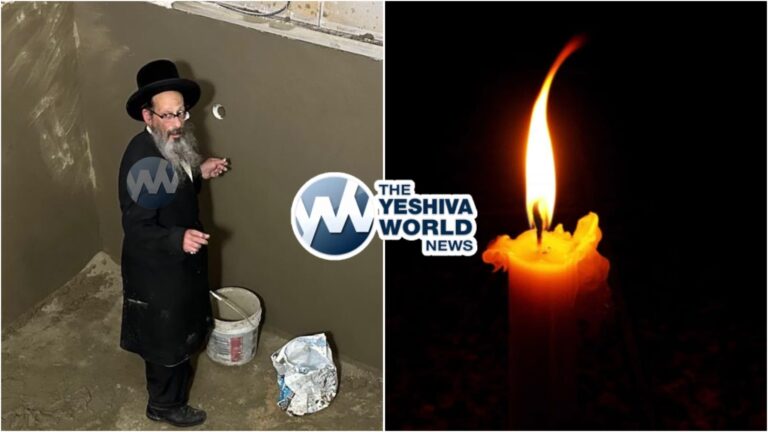
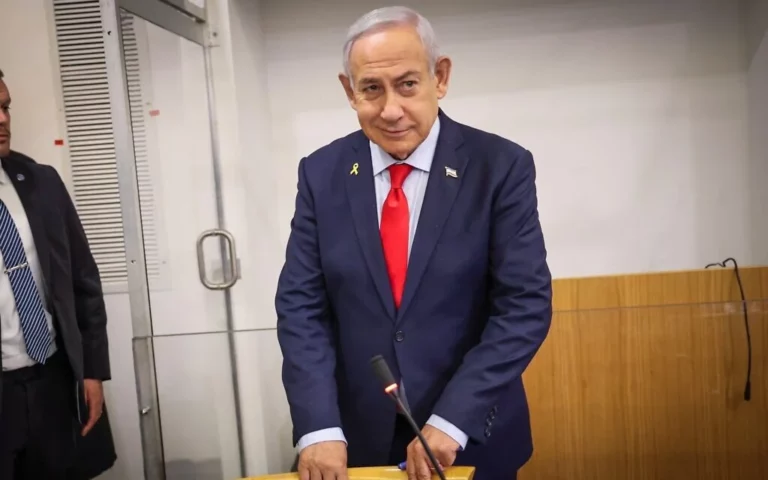
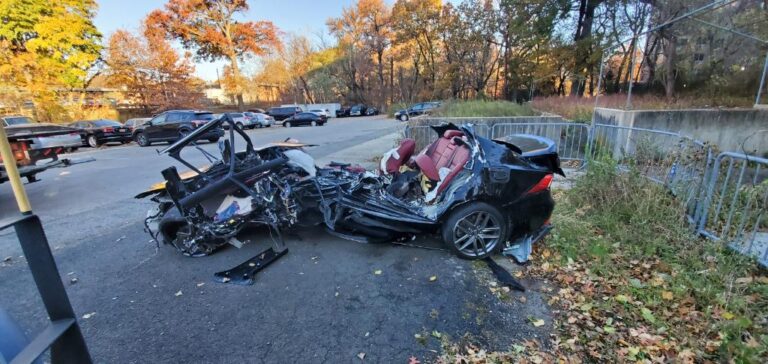
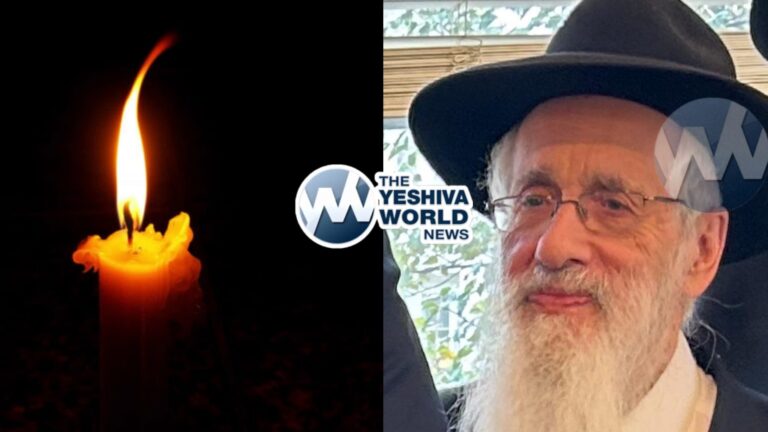




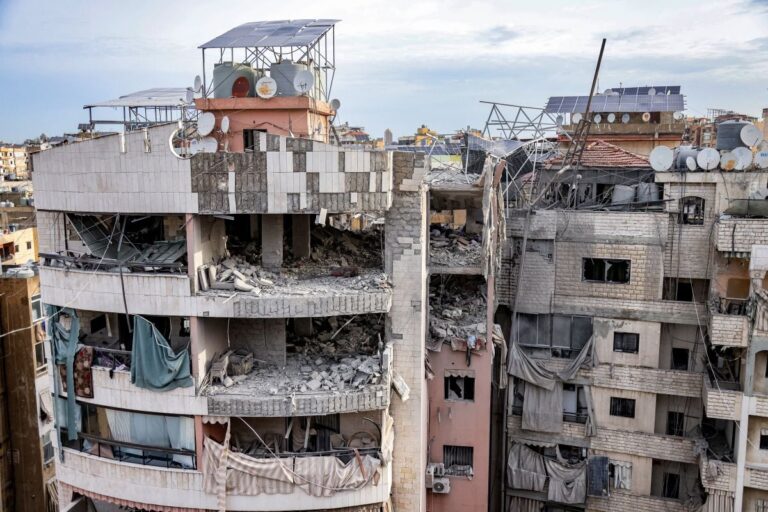
One Response
I do not know how to write to the author of this exposition directly, as I have been able to do with R’ Yair Hoffman.
This is a fairly well-written exposition. I would however, like to point out to the author that he could round out his knowledge on the topic of making early Shabbos if he would examine the topic and the bottom-of-page sources in מנהגים דק”ק וורמיישא, כרך א’, סי’ ק”א, where he may find opinions by eminent poskim like the Trumas HaDeshen and the Pnei Yehoshua who permitted davening Maariv before Plag HaMincha, and even the opinion of the Pnei Yehoshua, justifying such a practice in Worms with the idea that one can daven Mincha and Maariv, one after the other, after Mincha Gedolah.